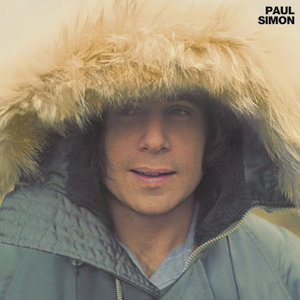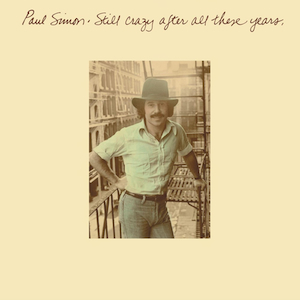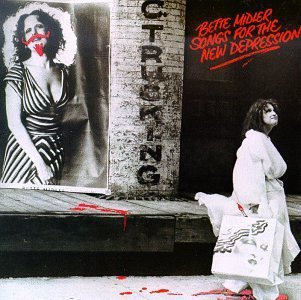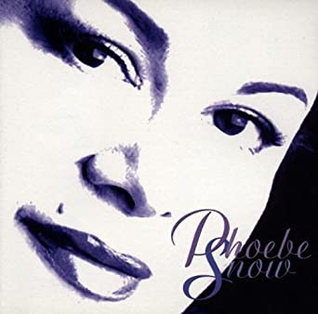
Paul Simon is the second solo studio album by American singer-songwriter Paul Simon. It was released in January 1972, nearly two years after he split up with longtime musical partner Art Garfunkel. His first solo album was recorded in England in 1965 but remained unreleased in the U.S. until 1981, when it appeared in the 5-LP Collected Works boxed set. Originally released on Columbia Records, Paul Simon was then issued under the Warner Bros. label and is now back with Columbia through Sony. The album topped the charts in the United Kingdom, Japan and Norway and reached No. 4 on the U.S. Billboard Pop Albums. In 1986 it was certified platinum.

The Bridge is the tenth studio album by American singer-songwriter Billy Joel, released on July 9, 1986. It was Joel's last studio album produced by Phil Ramone as well as the last to feature Joel's long-time bassist Doug Stegmeyer and rhythm guitarist Russell Javors. The album yielded several successful singles, including "A Matter of Trust", "Modern Woman", and "This Is the Time".

Mighty Like a Rose is the 13th studio album by the British rock singer and songwriter Elvis Costello, released in 1991 on compact disc as Warner Brothers 26575. The title is presumably a reference to the pop standard "Mighty Lak' a Rose", and although that song does not appear on the album, the words of its first stanza are quoted in the booklet of the 2002 reissue. It peaked at No. 5 on the UK Albums Chart, and at No. 55 on the Billboard 200.

Bonnie Raitt is the debut album by Bonnie Raitt, released in 1971.

The Glow is the seventh album by Bonnie Raitt, released in 1979. It was one of the first albums to be recorded and mixed digitally.

Second Childhood is the second album by the singer and songwriter Phoebe Snow, released in 1976. Second Childhood was certified gold by the RIAA on July 9, 1976.

Still Crazy After All These Years is the fourth solo studio album by Paul Simon. Recorded and released in 1975, the album produced four U.S. Top 40 hits: "50 Ways to Leave Your Lover", "Gone at Last", "My Little Town", and the title track. It won two Grammy Awards for Album of the Year and Best Male Pop Vocal Performance in 1976.

Phoebe Snow was an American roots music singer-songwriter and guitarist, known for her hit 1974 and 1975 songs "San Francisco Bay Blues", "Poetry Man", "Harpo's Blues", and her credited guest vocals backing Paul Simon on "Gone at Last". She recorded "San Francisco Bay Blues" also. She was described by The New York Times as a "contralto grounded in a bluesy growl and capable of sweeping over four octaves." Snow also sang numerous commercial jingles for many U.S. products during the 1980s and 1990s, including General Foods International Coffees, Salon Selectives, and Stouffer's. Snow experienced success in Australia in the late 1970s and early 1980s with five top 100 albums in that territory. In 1995 she recorded a gospel album with Sisters of Glory.

Blues is a compilation album of blues songs recorded by American singer/songwriter/musician Jimi Hendrix. Compiled by interim Hendrix producer Alan Douglas, it was released April 26, 1994, by MCA Records. The album contains eleven songs recorded by Hendrix between 1966 and 1970, six of which were previously unreleased. Hendrix wrote seven of the pieces; others include Muddy Waters, Booker T. Jones, and Elmore James. Most are demos, jams, and live recordings, which Hendrix may or may not have completed for release.

Songs for the New Depression is the third studio album by the American singer Bette Midler, released in early 1976 on the Atlantic Records label. The album was released on CD for the first time in 1990. A remastered version of the album was released by Atlantic Records/Warner Music in 1995. A limited edition remastered version of the album was released by Friday Music in 2014.

Celebrate Me Home is the debut studio album by American singer-songwriter Kenny Loggins, released in 1977. The album, Loggins' first since splitting from Loggins and Messina, represents a slight move away from the folk-rock leanings of his previous recordings towards a more polished, soft rock sound.

Traveling Miles is the thirteenth studio album by American jazz vocalist Cassandra Wilson. Released on the Blue Note label in 1999, it is a tribute to Miles Davis, taking many of its cues from Davis' catalog of recordings with Columbia Records. The album was nominated for the Grammy Award as Best Jazz Vocal Performance.

Tryin' Like The Devil is the second album by the country singer-songwriter James Talley. It was recorded at Jack Clement Studio B in Nashville, Tennessee.

Play: The Guitar Album is the seventh studio album by American country music artist Brad Paisley. It was released on November 4, 2008. Like all of his previous albums, Play was released on Arista Nashville and produced by Frank Rogers. The album is largely instrumental in nature, except for five vocal tracks. One of these tracks, "Start a Band", has been released as a single and has become Paisley's ninth consecutive Number One country hit, and his thirteenth overall. The album cover photograph was taken at Bristow Run Elementary School in Bristow, Virginia.

Never Letting Go is the fourth album by singer–songwriter Phoebe Snow, released in 1977.

Against the Grain is the fifth album by singer-songwriter Phoebe Snow, released in 1978.

It Looks Like Snow is the third album by singer–songwriter Phoebe Snow, released in 1976.

Rock Away is the sixth studio album by American singer-songwriter Phoebe Snow, recorded in 1980 and released in 1981.

Something Real is the seventh studio album by the American musician Phoebe Snow, released in 1989 by Elektra Records. It was her first album in eight years. While caring for her disabled daughter, Snow spent five years making demo tapes, and mailing them to labels.

I Can't Complain is the ninth studio album by American singer/songwriter Phoebe Snow, released in 1998.



















